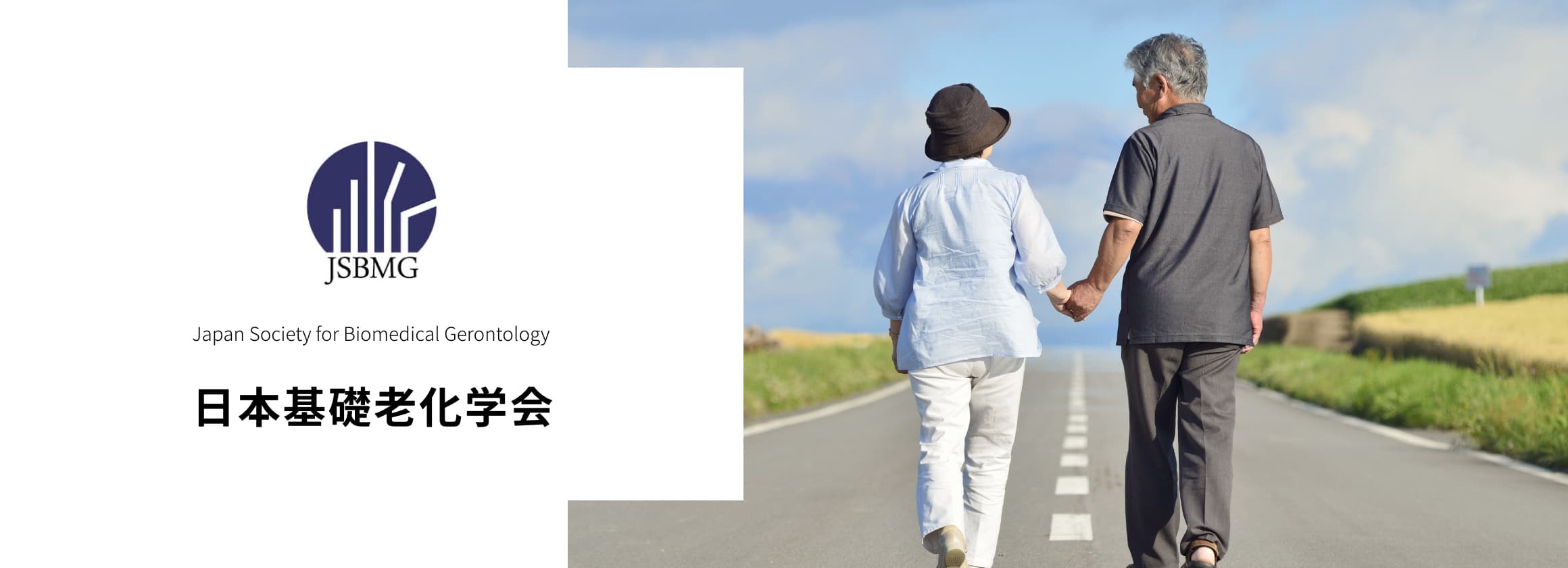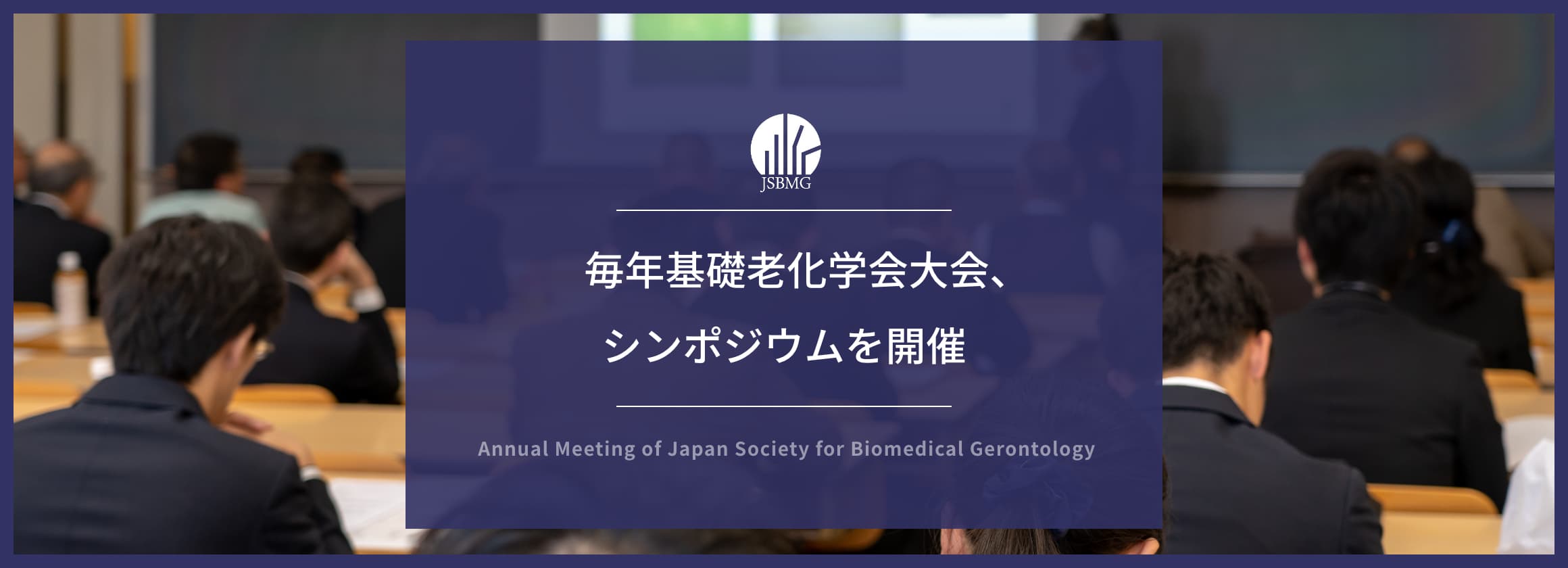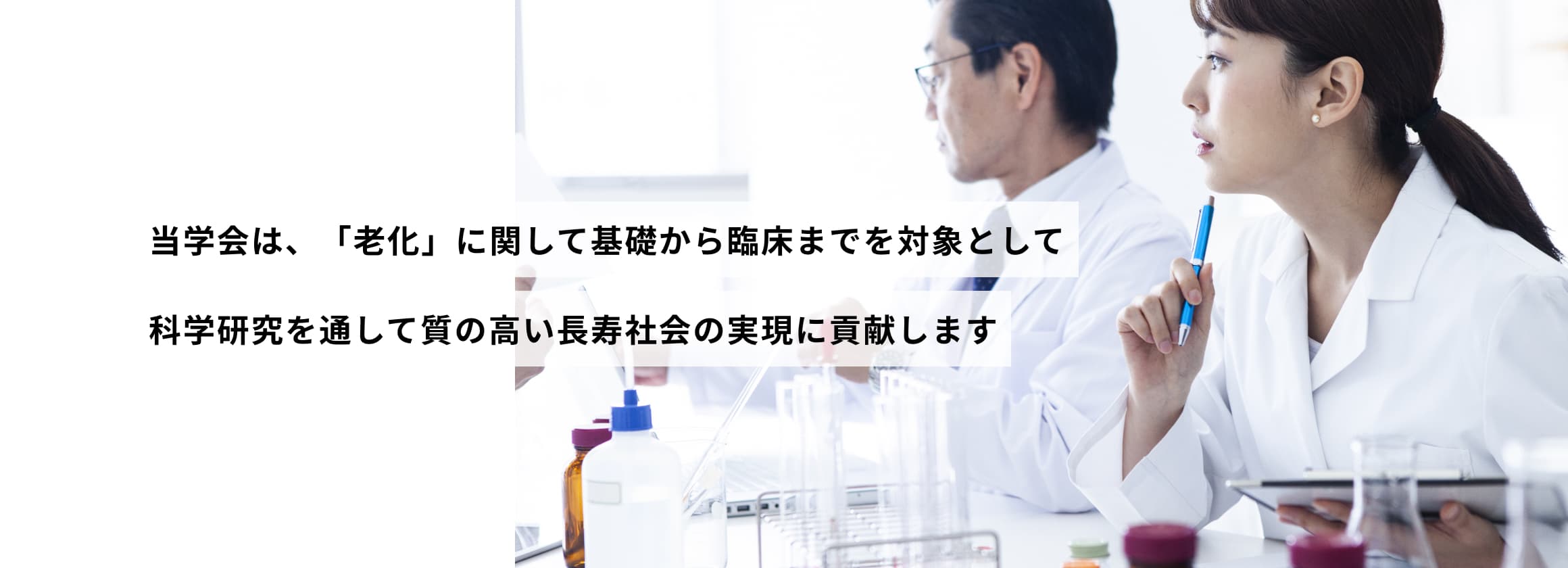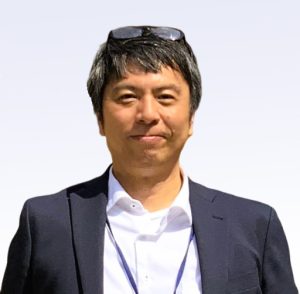Welcome to the Japan Society for Biomedical Gerontology
The Japan Society for Biomedical Gerontology (JSBMG) was born from the Japan Aging Research Group, a predecessor organization established in 1977. The group expanded and established JSBMG in 1981.
Aims of JSBMG:
1) Promotion of basic aging research based on scientific discussions
2) Contribution to achieving a healthy society, one with increasing healthy longevity
The official journal of JSBMG is Biomedical Gerontology, which is published three times a year. The Society hosts annual scientific meetings for members and organizes symposia covering a broad area of research relevant to aging research. The Society also participates in a biannual joint meeting composed of six gerontology-related societies, the Japan Geriatrics Society, the Japan Socio-Gerontological Society, the Japanese Society of Gerontology, the Japanese Psychogeriatric Society, the Japan Society of Care Management, and the Japan Academy of Gerontological Nursing.
JSBMG uses e-mail to deliver the most up-to-date information to you. If you are a JSBMG member and don’t currently receive e-mail from us, please send your e-mail address to the Secretariat (secretariat@jsbmg.jp). Please contact the Secretariat if you have any inquiries about membership or other issues regarding JSBMG.
Message from the President of the Japan Society for Biomedical Gerontology
It is with great honor and a profound sense of responsibility that I have assumed the position of the 11th President of the Japan Society for Biomedical Gerontology (JSBMG) as of April 2025. I am deeply humbled to serve in this role for a society that has long been at the forefront of aging science in Japan.
Since its founding in 1977, the JSBMG has provided an essential platform for researchers seeking to elucidate the fundamental mechanisms of aging at the cellular, tissue, and organismal levels. With diverse model systems ranging from yeast and nematodes to flies, mice, and humans, the society has fostered vibrant scholarly exchange through its annual meetings and publications, contributing significantly to the advancement of aging research and the promotion of healthy longevity.
My research has focused on the biological links between cellular senescence and tissue aging, particularly in the context of chronic disease. By investigating the underlying molecular mechanisms, I aim to contribute to the identification of therapeutic targets and the development of disease models that may support future interventions.
Looking ahead, I intend to build on the solid foundations laid by my predecessors and address the following priorities to ensure the continued growth and relevance of the society:
• Advancement and empowerment of early-career researchers
• Promotion of interdisciplinary and cross-sectoral collaboration
• Strengthening of academic and societal outreach through partnerships with related organizations
• Development of international networks and enhancement of the global visibility of our research community
As Japan continues to face the unprecedented challenges of a super-aged society, the role of basic aging research in informing medical, social, and policy innovations is more vital than ever. The integration of diverse scientific insights—from fundamental biology to translational applications—will be key to realizing the full potential of our work.
I will devote myself wholeheartedly to ensuring that the JSBMG remains a distinguished hub for excellence in aging research, fostering dialogue, discovery, and innovation across generations and disciplines.
I sincerely appreciate your continued support and collaboration.
April 2025
Masataka Sugimoto
President
The Japan Society for Biomedical Gerontology





